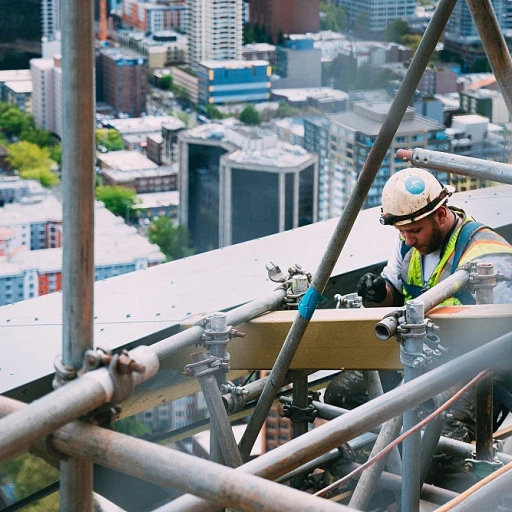
Understanding the Importance of Teamwork in Performance Reviews
The Role of Teamwork in Performance Evaluations
Understanding the importance of teamwork is crucial when it comes to performance reviews. Team dynamics can significantly influence the overall success of any project and establish a conducive work environment. Acknowledging how team members collaborate is vital in the review process because it helps identify each employee's role in achieving team success. In performance reviews, evaluating teamwork skills provides insights into team members' abilities to communicate effectively, demonstrate strong problem-solving skills, and consistently deliver quality work. Furthermore, team performance reviews serve as a foundation for crafting constructive feedback aimed at improvement. By focusing on teamwork, you can encourage a more cohesive and supportive team atmosphere. When evaluating this aspect, one must consider various elements, such as communication skills, the ability to manage tasks, and time management. These indicators can highlight how well team members work together and contribute to the team's overall goals. Performance reviews that emphasize teamwork can reinforce positive behavior and practices, guiding team members toward consistent improvement. Incorporating technologies like collaborative platforms and performance management software can streamline this process. They offer valuable data to review and feedback sessions, providing concrete examples of team performance patterns. As we move forward, recognizing the weight of teamwork in performance reviews continues to be crucial, empowering teams to achieve both individual and collective goals. For more insights on setting effective goals for your team's annual performance evaluation, visit this comprehensive guide.Crafting Constructive Feedback for Teamwork
Developing Constructive Review Methodology
Providing constructive feedback for teamwork involves more than just identifying the skills and abilities demonstrated by the team members. It requires a careful assessment of their contributions, communication skills, and how effectively they work within the team dynamics to achieve project success. A structured review process that focuses on these areas can significantly enhance the quality of work and the overall team performance.
To achieve this, it's important to blend specific, actionable feedback with positive phrases that recognize the employee's strengths. Consistently using constructive phrases helps to create a balanced review, offering a comprehensive view of the employee's performance. For instance, acknowledging an individual's ability to demonstrate strong problem-solving skills while suggesting focused improvement on time management can motivate a positive shift in behavior.
Here are a few techniques to craft your feedback constructively:
- Be Specific: Address particular examples where the employee's actions contributed to team success, rather than giving generic feedback. This helps team members to replicate desirable behaviors in future tasks.
- Focus on Behaviors: Concentrate on the behaviors related to teamwork rather than personal traits. Highlight how actions impacted the team's goals and performance outcomes.
- Use "I" Statements: Express your observations and feelings using "I" statements to encourage open communication. For example, "I noticed that you effectively managed the team project deadline, which positively impacted our work environment."
- Encourage Dialogue: Make room for discussion by asking questions that prompt your team members to reflect and share their perspectives.
For more insights on crafting strategies and implementing effective methodologies, you can explore the topic of effective coaching models in HR tech.
Common Phrases for Positive Teamwork Evaluation
Positive Phrases to Encourage Team Success
Performance reviews are intricate evaluations that focus on multiple elements, with teamwork being a pivotal aspect. To effectively recognize and encourage team success, constructive phrases are indispensable. Using the right words can significantly impact an employee's perception and drive towards continuous improvement. Here are some example phrases to consider:- "Demonstrates strong communication skills consistently": This phrase acknowledges an employee's ability to effectively share information and ideas within the team, which is crucial for team dynamics and project success.
- "Contributes to a positive work environment": By highlighting a worker's influence on the overall atmosphere, you emphasize the importance of morale and collaboration among team members.
- "Shows exceptional problem-solving abilities": Recognizing an employee's skills in addressing and resolving issues can motivate them to tackle future challenges with confidence.
- "Works effectively towards common goals": This acknowledges an employee's alignment with the team's objectives, fostering a sense of unity and purpose.
- "Provides quality work under tight deadlines": Praising time management skills ensures team performance isn't compromised during high-pressure situations.
Addressing Areas for Improvement in Teamwork
Constructive Phrases to Address Teamwork Improvement
Addressing areas for improvement in teamwork is a critical component of any performance review. It involves more than merely pointing out weaknesses; it’s about guiding team members towards enhancing their overall performance.- Recognizing the Areas for Growth
- Delivering Feedback Effectively
- "While your communication has been generally effective, collaborating on project success could benefit from more proactive updates."
- "Demonstrating strong problem-solving skills will enhance team success and personal performance."
- Setting Improvement Goals
- Encouraging Continuous Development
Incorporating Technology in Teamwork Evaluations
Leveraging Technology for Comprehensive Team Evaluations
In modern performance reviews, the integration of technology plays a pivotal role in enhancing the assessment of teamwork dynamics. It provides a more comprehensive view of the team’s collective performance and individual contributions. Various software tools and platforms are available that streamline the review process, allowing managers to offer constructive feedback consistently and efficiently.
One of the significant advantages of using technology is the ability to track team performance over time. This allows managers to identify patterns in teamwork, communication skills, and problem-solving abilities. For instance, performance management systems often come with features that enable the storage and analysis of past reviews, making it easier to identify areas for improvement and ensure that employees demonstrate strong skills in their roles.
- Enhanced Communication: Digital platforms facilitate better communication between team members and managers, bridging gaps that could lead to misunderstandings. Real-time feedback tools can be used to provide immediate responses to tasks completed by the team, encouraging an agile and responsive work environment.
- Consistent Feedback: Technology ensures that feedback is given consistently, thus preventing biases that could occur in traditional review processes. This consistency is crucial in maintaining motivation and focusing on long-term goals.
- Automated Review Processes: Automated systems help in gathering data about team dynamics and project success, making it easier for managers to focus on more strategic aspects of performance reviews.
The rise of digital tools also contributes to setting clear, measurable goals for the team, which can be revisited and revised during the review process. Tools that track these goals can effectively illustrate a team’s progress and areas where improvement is needed.
Embracing technology is imperative to maintain a robust review process, aligning with the future trends in teamwork performance assessments. As collaboration tools evolve, they will enable more enhanced, data-driven reviews that support both individual and team success.













